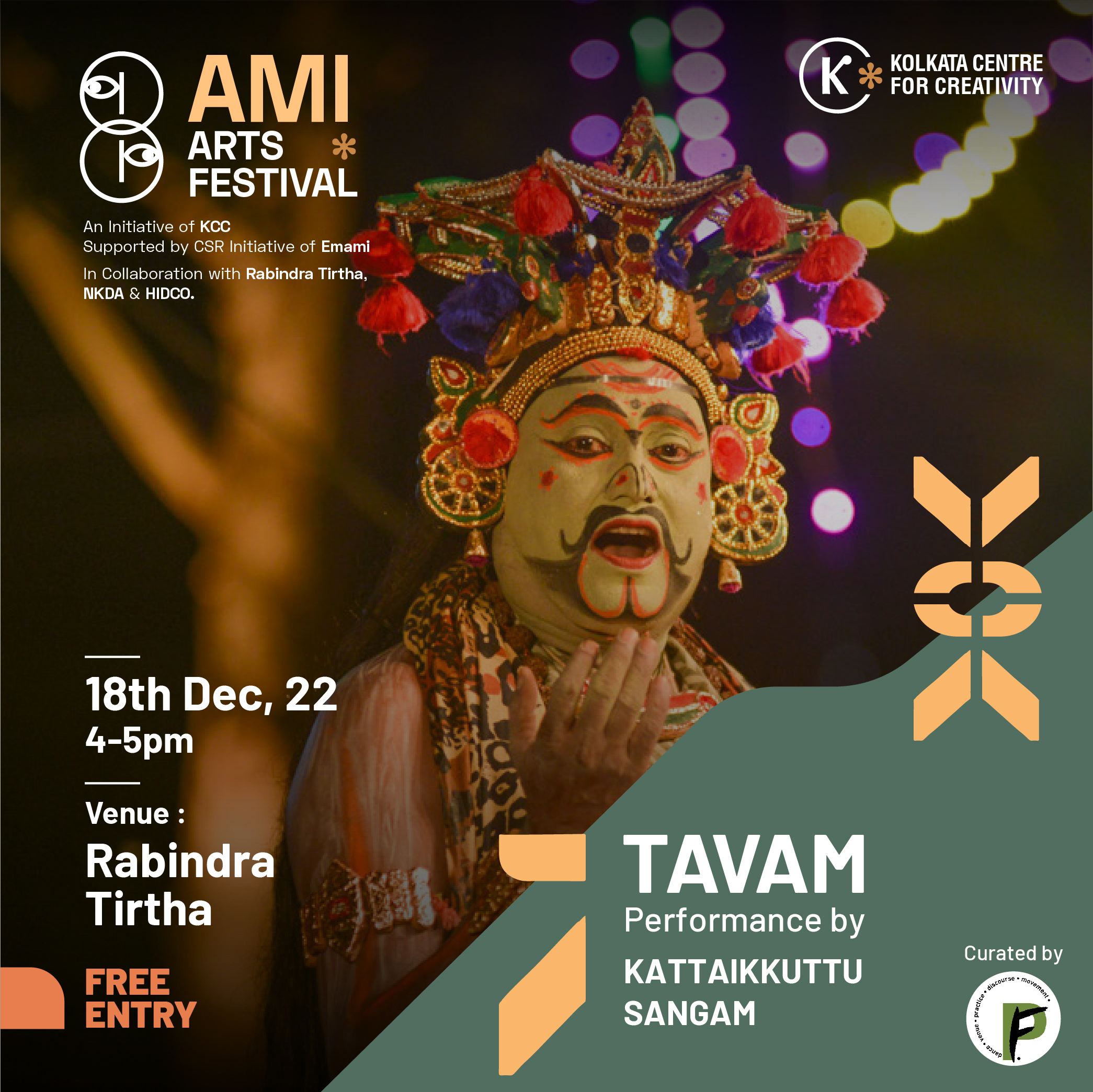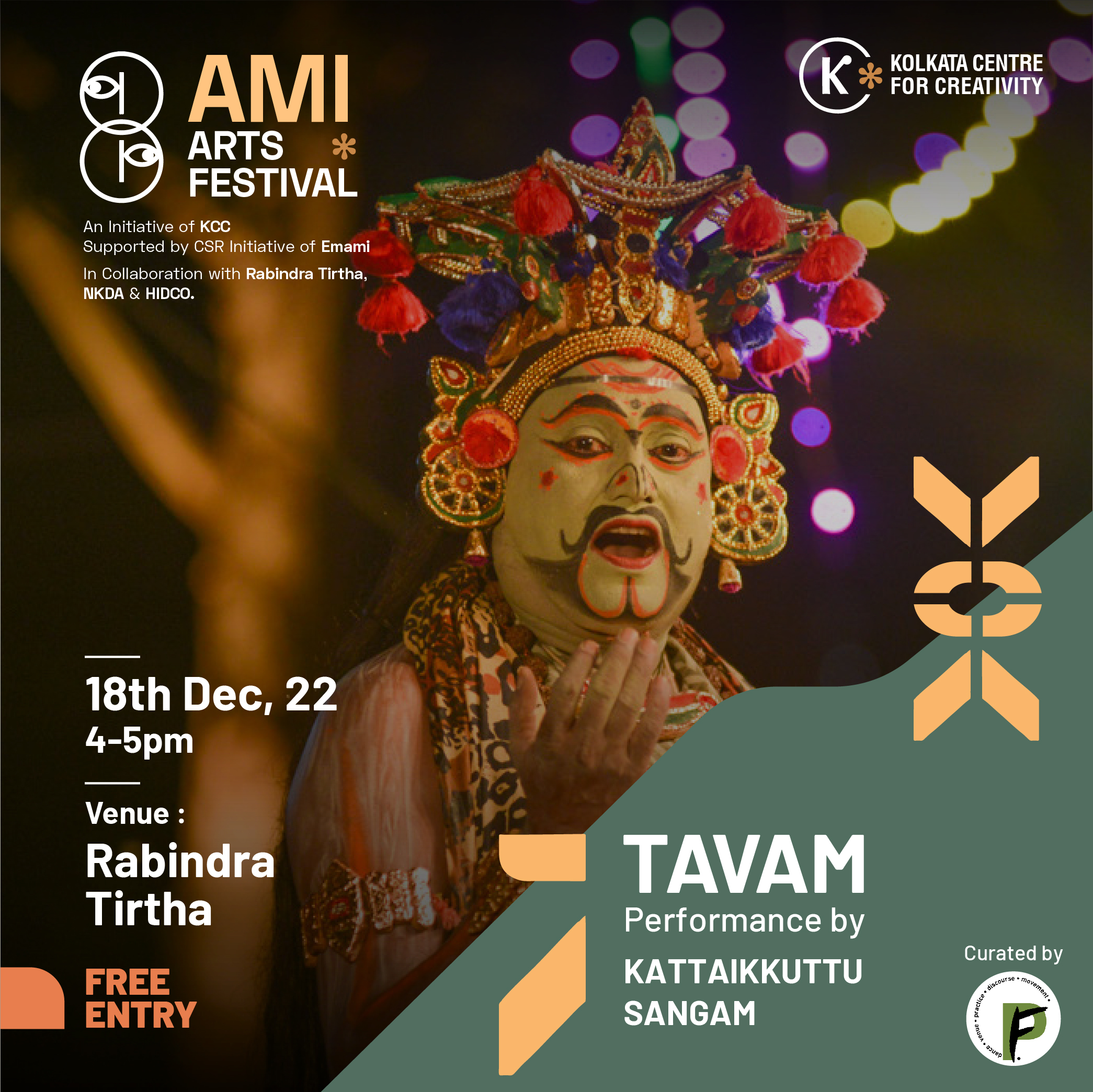Tavam
TAVAM has been imagined as two journeys in opposite directions: on the one hand, Arjuna’s journey to Mount Kailasa in search of the Pasupati weapon and, on the other hand, the journey of five young rural women Kattaikkuttu performers into a socially forbidden, male-only theatre world. Tavam was a Kattaikkuttu performance by Kattaikkuttu Sangam and was been curated by Pickle Factory Dance Foundation. Tavam had been imagined as two journeys in opposite directions: on the one hand, Arjuna’s journey to Mount Kailasa in search of the Pasupati weapon and, on the other hand, the journey of five young rural women Kattaikkuttu peformers into a socially forbidden, male only theatre world.
Venue: Open-air Stage, Rabindra Tirtha
Date: 18th December
Time: 16:00 - 17:00 Hrs (IST)

About the Artist
P. Rajagopal (Perungattur, 1953) is a versatile Kattaikkuttu actor born into a family of hereditary performers. He is also a director, teacher and playwright. Rajagopal is the co-founder of Kattaikkuttu Sangam (1990), a grassroots association uniting Kattaikkuttu actors and musicians across styles and regions, and the founder of the Kattaikkuttu Gurukulam (2002-2020). He has been a strong advocate of opening up Kattaikkuttu to women and a moving force to promote Kattaikkuttu in its own right. He has also worked as a Guest Lecturer (2019-2020) at the Performing Arts department of Ashoka University, Haryana. Rajagopal has performed and taught abroad in the Netherlands, the UK, Belgium, Germany and Switzerland. He is a recipient of several prestigious awards over the span of his career.
He is a principal mover and shaker in transmitting the art of Kattaikkuttu to the next generation, making this traditional theatre accessible to all genders, contemporizing its repertory and ensuring a high quality of performance. Rajagopal is married to Dr Hanne M. de Bruin, who is a co-creator and scholar of Indian theatre.

.jpg)

